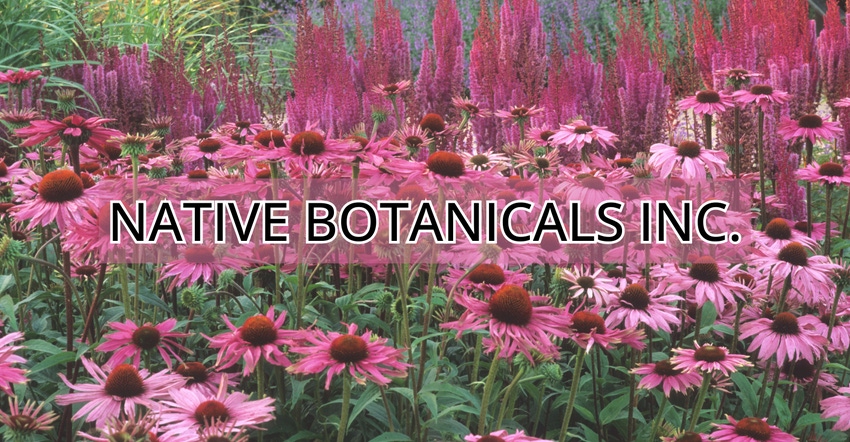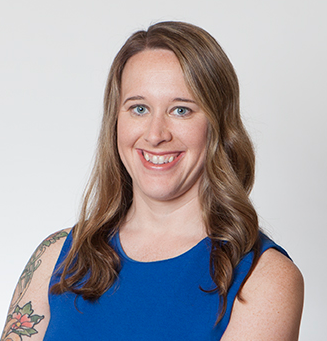
Most people don’t know the going rate for grindelia and goldenseal or the precise growing conditions arnica needs to survive. Fortunately for the botanicals industry, there’s Edward Fletcher.
Plants are in his blood. Fletcher grew up in a native plant nursery in North Carolina that his great-grandfather started in 1892, learning how to propagate species—goldenseal, ginseng, Solomon’s seal—in ways that wouldn’t impact the wild and wildcrafting only when planting stocks were needed. “From an early beginning, my grandfather taught me that you need to protect the environment,” Fletcher says. “You don’t just go out there and take everything out of it but give back to it and everything.”
He credits this ethos to his Cherokee heritage on his grandmother’s side. His grandmother was the matriarch who taught him to respect the plants the family used medicinally, such as the pleurisy root she’d give him at nine years old when pleurisy, the lung condition, caused his side to hurt, so that he could continue playing with his cousins.
For Fletcher’s stewardship of the plant world—including the ecosystems they grow in and the people who grow, harvest and use them—NBJ is honoring his company, Native Botanicals, with the 2022 Sustainability and Stewardship Award.
For the past three decades, Fletcher has been procuring herbs, both locally in his native Appalachian communities as well as partnering with growers all over the world, to bring botanicals that have traditionally depended on wild harvesting into cultivation. He sees an opportunity to not only protect the global supply chain also the plants and ecosystems that have traditionally supplied them. That is the raison d’etre of Native Botanicals, which Fletcher started in 2003 and is now committed to full time.
Growing up in the nursery trade and seeing plants being sold in large volumes before he extended his own interests into medicinal plants, Fletcher has become an expert in how botanicals are collected. He’s integrated that into his sourcing ethics to help companies such as Wilcox Natural Products, a well-known supplier of medicinal herbs from the Appalachian region, which hired him in the mid-1990s to cultivate many of the same species his family’s business had handled.
Fletcher continued to work for a couple other companies on the cultivation side before building up his own company, partnering with many of the same growers and creating the relationships that have put him at the center of the herb world. “He’s the person in terms of both commercial knowledge but also the knowledge of the actual people and communities that are reliant on what is the largest economic commodity other than timber in North Carolina,” says Bill Chioffi, chief strategy and innovation officer at Nammex and former vice president global sourcing and sustainability at Gaia Herbs. “The supply chain—nobody knows it better than Ed.”
A people-first approach
If anyone had asked Fletcher about sustainability 10 years ago, he would have said it’s 100% about the plants. But not any longer. “More recently, for many reasons, I think [it's] not only sustainability of the plants but the sustainability of the people who are producing them,” he says.
Fletcher has always been in touch with where plants come from, but he’s also conscious of the origins of the people who produce them. To have these plants here, he believes, it’s necessary to be sustainable in all aspects. His old-school mentality of paying what something’s worth sometimes raises eyebrows, but it’s the way he’s always done things. He determines what to charge for plants by asking the growers—his suppliers—what they need to be profitable. Many of them are farmers who are growing herbs supplemental to the crops they grow to pay the bills, Fletcher says, and he wants to make growing herbs meaningful for them. “If we’re not getting a fair price and paying our suppliers a fair price, the sustainability is gone.”
This transparency extends into the expectations he sets with his customers, who often seek material without understanding the plants’ growing timeline. “I’m very transparent with my suppliers. I’m very transparent with my customers,” Fletcher says. “I say, ‘Here’s the way it is. We can produce it, and here’s what it’s going to cost, and if you want this quality, then we may have to change a little bit of our production.’ Being completely transparent, you have a lot less issues down the road.”
Walk the talk
Mitch Coven, CEO and president of contract manufacturer Vitality Works, says Fletcher aligns with his company’s core values.
“He walks the walk. He’s the real deal,” Coven says. “And while there are lots of folks out there—from brokers to growers to wildcrafters to brands that are newly marketing that they are practicing sustainable measures and are being good stewards of the planet and their company—Ed has been doing this as a mission and life value from the start. It’s who he is and not marketing buzz words.”
People who work with Fletcher believe he is safeguarding the industry with his “boots on the ground knowledge” of the herbal supply chain. “It’s not good enough to just have a fully vetted paper supply chain for all of the required quality parameters for your herbs for identity, purity and potency, in many cases,” Chioffi says. “It’s also the sustainability—and more, the responsibility—of companies to ensure that you can have that same supply while we have environmental sensitivities, economic sensitivities and cultural sensitivities that are all making it harder for those types of herbs to stay in sustainable commerce.”
Chioffi suggests companies duplicate Fletcher’s model for this reason. “It gives you an actual true picture of the needs of the community and whether they can supply things,” he says. “Weather has affected certain crops, and Ed knows where those regions have been the most impacted.” Because of his network, Fletcher is able to help companies source botanicals in unaffected areas.
The other plant stars
Fletcher is also working to keep herbal medicine alive. By cultivating certain botanicals, even some that are not in high demand today, he’s helping to keep these medicines available, says Coven, whose company helps make finished goods for about 800 brands. One example is osha. Though not yet producing at scale, Fletcher is one of the very few people to successfully cultivate the plant, which is limited to wild harvesting in northern New Mexico.
“A lot of folks are just defaulting to the rockstars, especially as herbal companies are bought out by venture capitalists and M&A firms who are just looking at what herbs are the rockstars for the mass market,” Coven says. “There are still so many other plants that are getting harder to find that he is helping to make available and may not be there if it weren’t for some forward thinking.”
The wildcrafters the industry has counted on are now in their seventies, and a new generation has yet to take the reins. “People don’t want to necessarily pick up a shovel and get really dirty and sweaty,” Coven says. “Well, that’s a problem.”
Passing the torch
To the benefit of the industry, Fletcher donates his time and knowledge to steward best practices for growing medicinal plants. He was instrumental in crafting AHPA’s Guidance on Good Agriculture and Collection Practices and Good Manufacturing Practices for Botanical Materials as a template for the best ways to grow and collect herbs. “In a way, he’s educating his competitors, as well as future generations, and he’s memorializing all of this,” Coven says. “He doesn’t have to do that.”
As often happens when industries experience successful periods, people like Coven fear that shifting priorities will affect material quality. The people who founded the successful companies that stewarded the best values are now retiring or being bought out. Coven, who started his company 40 years ago and still owns it, says he can “call Ed or whoever and spend more money and get the plants he needs harvested in the right season and in a way that doesn’t overharvest.” Such sustainable harvesting practices as Native Botanicals’ ensures they’ll be here for future years and generations. For Fletcher and many others in the industry, that matters.
“He works really hard, and he does it for a basic love of the plants, at the end of the day,” Chioffi says.
The NBJ 2023 Awards issue is available at no cost on the NBJ app or through the NBJ store. Subscribe today to the Nutrition Business Journal.
About the Author(s)
You May Also Like





